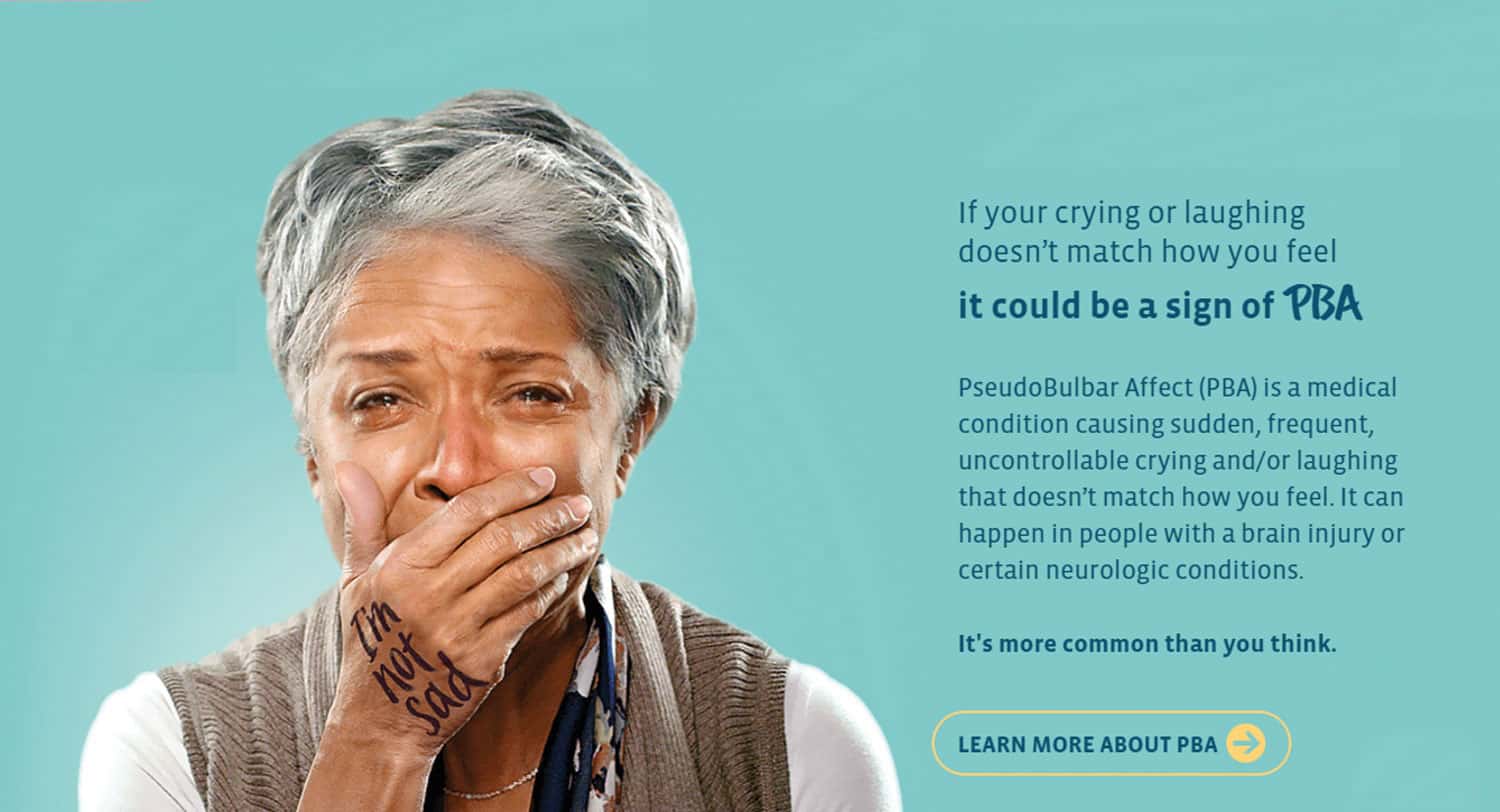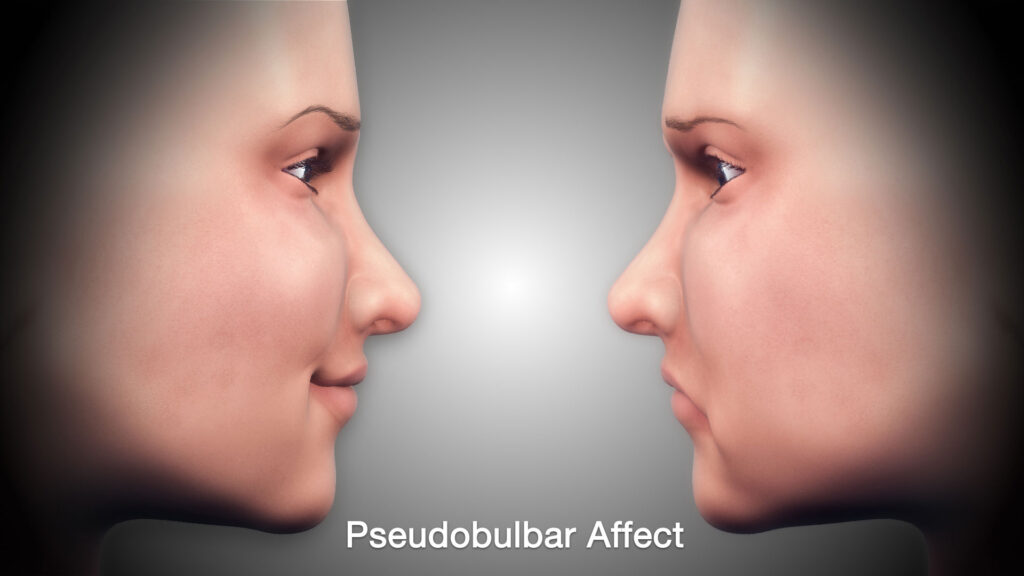WHAT IS PSEUDOBULBAR AFFECT?
Pseudobulbar affect (PBA) is a state that is characterized by episodes of unexpected uncontrollable and inappropriate laughing or crying. Pseudobulbar affect generally happens in people suffering from specific neurological conditions or injuries, which may affect the way the brain controls emotion.
If you have a pseudobulbar affect, you will experience emotions normally, but you will sometimes express them exaggeratedly or inappropriately. As a result, the condition could be embarrassing and disruptive to your daily life.
Pseudobulbar affect usually goes undiagnosed or is misunderstood for mood disorders. Once diagnosed, however, pseudobulbar affect could be managed with medication.

SYMPTOMS
The main sign of pseudobulbar affect (PBA) is common, involuntary, and uncontrollable outbursts of crying or laughing which are exaggerated or not connected to your emotional condition. Laughter usually turns to tears. Your mood will appear normal between episodes, which could happen at any time. Crying appears to be a more frequent sign of PBA than laughing.
The level of the emotional response caused by PBA is usually striking, with crying or laughing lasting until several minutes. For instance, you may laugh uncontrollably in response to a mildly amusing comment. Or you may laugh or cry in situations that others do not see as funny or sad. These emotional responses generally represent a change in the way you would have responded previously.
Because pseudobulbar affect usually includes crying, the condition is frequently mistaken for depression. Although, PBA episodes tend to be short in duration, while depression causes a continuous feeling of sadness. Also, people with PBA usually lack specific features of depression, like sleep disturbances or a loss of appetite. But depression is frequent among those who have pseudobulbar affect.
WHEN SHOULD YOU SEE A DOCTOR?
If you think you have PBA, speak to your doctor. If you suffer from a neurological disorder, you may already be treated by a doctor who could diagnose PBA. Helpful specialists involve neuropsychologists, neurologists, and psychiatrists.
It is suspected that numerous cases of pseudobulbar affect are not reported and have not been diagnosed because of a lack of awareness about the state.
CAUSES
Pseudobulbar affect (PBA) generally happens in people with neurological conditions or injuries, including:
- Stroke
- Multiple sclerosis (MS)
- Traumatic brain injury
- Alzheimer’s disease
- Parkinson’s disease
While further research is required, the cause of PBA is believed to involve injury to the neurological pathways that regulate the external expression of emotion (affect).

COMPLICATIONS
Severe symptoms of pseudobulbar affect (PBA) could cause embarrassment, social isolation, anxiety, and depression. The condition may interfere with your ability to work and do daily tasks, particularly when you are already coping with a neurological condition.
DIAGNOSIS
Pseudobulbar affect (PBA) is generally diagnosed during a neurological evaluation. Specialists who could diagnose PBA include internists, neuropsychologists, neurologists, and psychiatrists.
PBA is usually misdiagnosed as depression, bipolar disorder, generalized anxiety disorder, schizophrenia, a personality disorder, and epilepsy. To help your doctor determine if you have PBA, share certain details about your emotional outbursts.

TREATMENT
The objective of treatment for pseudobulbar affect (PBA) is to lower the severity and frequency of emotional outbursts. Medication options involve:
- Antidepressants – Antidepressants, like tricyclic antidepressants (TCAs) and selective serotonin reuptake inhibitors (SSRIs), could help reduce the frequency and severity of your PBA episodes. Antidepressants for the treatment of PBA are generally prescribed at doses lower than are those used to treat depression.
- Dextromethorphan hydrobromide and quinidine sulfate (Nuedexta) – This is the only medication approved by the Food and Drug Administration (FDA) that is designed to specifically treat PBA. A study on people with MS and ALS indicated that those taking the medication had only about half as many laughing and crying episodes as did those taking the placebo.

Your doctor will help you choose the best treatment for you, taking into account possible medication side effects and any other conditions you have and medications you use.
An occupational therapist also could help you develop ways to complete everyday tasks despite your PBA.
If you or anyone you know is suffering from a pseudobulbar affect, our expert providers at Specialty Care Clinics will take care of your health and help you recover.
Call us on (469) 545-9983 to book an appointment with our specialists.
